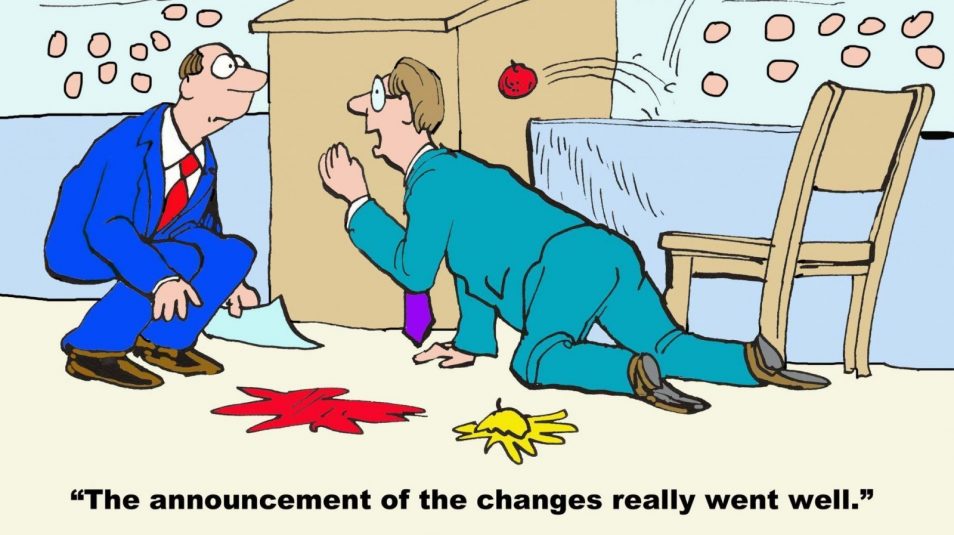Leadership in a Changing Culture

Leadership
December 26, 2017
John Thurlbeck
How many of us have experienced effective cultural change? How many, not?
My sense is more of the latter than the former, and chief among the reasons for change failing is the pivotal role of the leader.
One startling example from my past, doomed to glorious failure from the outset, was a former Head of Service, who said at our very first senior staff meeting, “From now on, we will pursue the leadership model of Ready, Fire, Aim!”
Yes, you read that right! Imagine my colleagues and me looking incredulously at our Head of Service! As a forerunner to a positive cultural change process, it heralded an unmitigated disaster, and so it proved.
Fortunately, shortly into his tenure, I secured my first Head of Service appointment, and so I was spared the worst. Some excellent friends and colleagues, however, were not quite so lucky!
That example highlights the potential impact of leadership in any change process, for good or ill. In this post, I distill my learning about three essential elements for effective change leadership – building relationships that deliver results; creating and sharing knowledge that shapes ownership; and, making coherence of the change process that embeds change in the team or organization.
Building relationships that deliver results
I believe that effective leaders know how to build the trust necessary for teams and organizations to function well. That is also true for leading change correctly. It happens in various ways:
- By enabling less risk-averse staff to flourish, through celebrating their efforts.
- Through facilitating problem-solving, rather than always offering solutions.
- By coordinating clear, collective actions towards stated goals.
- Through sustaining a healthy, ethical and moral imperative that the change is positive for the right reasons.
These actions help grow the trust necessary for effective change. They also impact three critical types of trust that I will describe more fully in January's post.
Creating and sharing knowledge
Effective change occurs too when a leader creates and shares knowledge. However, my experience also tells me that few people voluntarily share knowledge unless their culture favors exchange. That leads us to the second critical element.
Effective transformation leaders frame the giving and receiving of knowledge as an individual and collective responsibility. How often have you experienced the opposite? I know too often in change scenarios, I felt powerless due to lack of information and any sense of the ‘bigger picture.’
So, my learning tells me that the leader’s role here is to stimulate learning by sharing and developing information that helps people to locate themselves in the imagined future. Using mental models or developing rich pictures can help.
Making coherence of the change process
Finally, the third critical role of any change leader is making coherence. Change can be a time – real or imagined – of chaos, disparity, and disruption. For many, that will prove scary, confusing and debilitating. More often than not, people will develop a singular focus on their situation, to the exclusion of much else.
However, the change is always more significant than just one person, and as the leader, you need to achieve coherence for the whole picture. That might mean, for example, from coordinating change activities, aligning necessary procedural or policy change, to initiating reskilling or other professional development actions.
From my direct experience, coherence works best by working with colleagues through the ambiguities and complexities of hard-to-solve problems. I often used – we are here and need to be there – type scenarios to openly and transparently discuss and then agree on some outcomes that made sense to the whole team, not just a few.
It is a practical process. It keeps a focus on desired outcomes that are relevant to all, not a few. It helps people to find a shared pathway, which is the most potent coherence maker I have ever personally experienced.
So, how do you fare on reflection of your previous change practice? How well have you built relationships, created and shared knowledge, and made coherence?






